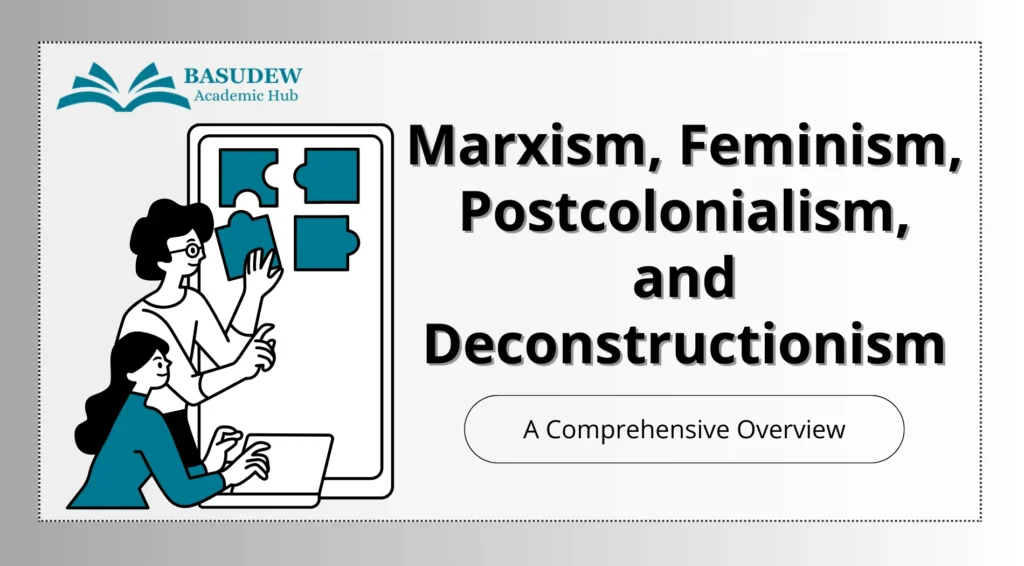Meditation, an ancient practice that has transcended cultural and geographical boundaries, holds the key to unlocking a deeper understanding of ourselves and the world around us. It offers a simple yet profound way to manage modern life’s complexities, enabling mental clarity, emotional stability, and physical well-being. With roots in spiritual traditions and a strong presence in contemporary wellness practices, meditation has proven to be a cornerstone of a balanced life.
In this article, we’ll dive deep into the transformative benefits of meditation, how to integrate it into daily life, and why it has become a universal remedy for the chaos of modernity. Let’s explore the essence of meditation and its impact on our mind, body, and soul.
A Brief History of Meditation
Meditation has existed for millennia, evolving through diverse cultures and philosophies. Its origins trace back to ancient India, where it was an integral part of spiritual practices in Hinduism, Buddhism, and Jainism. The word “meditation” stems from the Latin term meditatum, meaning “to ponder,” reflecting its core principle of introspection.
- Ancient Practices: In Hindu scriptures like the Vedas and Upanishads, meditation is described as a means of connecting with the divine. Similarly, Buddhism emphasizes mindfulness (sati) and concentration as paths to enlightenment.
- Spread Across the World: As trade and travel flourished, meditation spread to China, Japan, and other parts of Asia, influencing Taoism and Zen Buddhism. Over time, it entered Western cultures, where it evolved into a secular practice focusing on stress relief and personal development.
- Modern-Day Revival: In the 20th century, pioneers like Swami Vivekananda, Maharishi Mahesh Yogi, and Jon Kabat-Zinn introduced meditation to the West, combining ancient wisdom with scientific insights.
Today, meditation has transcended its spiritual roots, becoming a widely accepted practice for enhancing mental, emotional, and physical health.
The Core Benefits of Meditation
Meditation has long been recognized as a powerful tool for enhancing both mental and physical well-being. Here are some core benefits of meditation:
1. Stress Reduction: A Modern Necessity
Stress has become a ubiquitous part of daily life, affecting our health, relationships, and productivity. Meditation offers a scientifically validated way to mitigate its effects.
- How It Works: Meditation reduces the production of cortisol, the stress hormone, and activates the parasympathetic nervous system, which promotes relaxation.
- Scientific Evidence: Studies show that mindfulness meditation can lower perceived stress levels, helping individuals cope with anxiety and tension. Regular practice improves emotional resilience, enabling a calmer response to challenges.
2. Enhanced Focus and Productivity
In an age of constant distractions, staying focused is increasingly difficult. Meditation sharpens the mind, improving attention span and cognitive performance.
- Key Benefits:
- Improved memory retention.
- Enhanced problem-solving skills.
- Increased creativity and innovative thinking.
- Real-Life Example:
- Tech leaders like Steve Jobs attributed their success to the clarity gained through meditation.
3. Emotional Regulation and Self-Awareness
Meditation teaches us to observe our thoughts and emotions without judgment, fostering greater emotional intelligence.
- How It Helps:
- Reduces impulsive reactions.
- Cultivates empathy and compassion.
- Promotes self-acceptance.
- Practical Impact:
- Whether navigating a difficult conversation or managing grief, meditation provides the tools to remain grounded and responsive.
4. Physical Health Benefits
The mind and body are deeply interconnected, and meditation positively influences physical health.
- Proven Benefits:
- Lower blood pressure and heart rate.
- Enhanced immune system functioning.
- Better pain management for chronic conditions like arthritis or migraines.
- Why It Works: By promoting relaxation, meditation reduces inflammation and boosts the body’s natural healing mechanisms.
5. Better Sleep Quality
Sleep disturbances are a common issue in today’s fast-paced world. Meditation helps quiet the mind, making it easier to fall asleep and stay asleep.
- Techniques for Sleep:
- Body scan meditations to release tension.
- Guided sleep meditations to promote relaxation.
- Results: Regular practice leads to deeper, more restorative sleep, leaving you refreshed and energized.
6. Combatting Anxiety and Depression
Meditation offers a non-invasive, drug-free method to address mental health challenges.
- Research Findings: Studies have shown that mindfulness-based stress reduction (MBSR) can significantly decrease symptoms of anxiety and depression.
- Why It’s Effective: Meditation alters brain activity in regions associated with stress and mood regulation, creating a sense of inner peace.
7. Spiritual Growth and Self-Discovery
For those seeking deeper meaning in life, meditation serves as a gateway to spiritual awakening and self-discovery.
- Benefits:
- A heightened sense of purpose.
- Connection with a higher power or universal consciousness.
- Insights into personal values and aspirations.
- Personal Transformation: Many practitioners report feeling more aligned with their true selves, experiencing a profound sense of fulfillment.
What are the Different Types of Meditation
Meditation is not a one-size-fits-all practice. Various techniques cater to different needs and preferences.
1. Mindfulness Meditation
- Focuses on being present in the moment without judgment.
- Ideal for stress reduction and improving concentration.
2. Transcendental Meditation
- Involves silently repeating a specific mantra.
- Aims to transcend ordinary thought processes and achieve deep relaxation.
3. Loving-Kindness Meditation
- Encourages compassion and empathy by sending positive intentions to oneself and others.
- Benefits emotional well-being and relationships.
4. Guided Meditation
- Uses audio or visual cues to guide the practitioner.
- Suitable for beginners or those seeking specific outcomes like better sleep or stress relief.
5. Body Scan Meditation
- Involves systematically focusing on different parts of the body.
- Effective for releasing physical tension and promoting relaxation.
6. Zen Meditation (Zazen)
- Rooted in Zen Buddhism, this practice emphasizes seated meditation and mindfulness.
- Encourages a heightened state of awareness and acceptance.
7. Movement-Based Meditation
- Includes practices like yoga, Tai Chi, and Qigong.
- Combines physical movement with mindful awareness.
Practical Steps to Begin Your Meditation Journey
Starting meditation can feel intimidating, but with the right approach, it becomes a rewarding habit.
1. Set Realistic Goals
- Begin with just 5–10 minutes daily.
- Gradually increase the duration as you grow more comfortable.
2. Create a Dedicated Space
- Choose a quiet, comfortable location free from distractions.
- Enhance the ambiance with soft lighting, candles, or calming scents.
3. Find a Technique That Resonates
- Experiment with different meditation styles to discover what works best for you.
- Use apps or online resources for guided sessions.
4. Be Consistent
- Practice at the same time each day to build a routine.
- Morning meditation can set a positive tone, while evening sessions promote relaxation.
5. Practice Patience
- Understand that meditation is a skill that develops over time.
- Don’t get discouraged by a wandering mind; gently bring your focus back.
Real-Life Stories: How Meditation Changes Lives
Meditation has the power to transform lives in ways that go beyond simply promoting relaxation. Here are a few real-life stories that illustrate how meditation can help overcome adversity and bring lasting change.
1. From Burnout to Balance
Sara, a marketing executive, struggled with chronic stress and burnout. Through daily mindfulness meditation, she learned to manage her workload, prioritize self-care, and rediscover her passion for life.
2. Healing from Trauma
After experiencing a personal loss, John turned to loving-kindness meditation. The practice helped him process grief, forgive himself, and rebuild emotional resilience.
3. Enhancing Creativity
A writer facing a creative block found inspiration through mindfulness. By quieting the mind, they accessed new ideas and completed their novel.
The Science Behind Meditation
Modern neuroscience has validated many of meditation’s benefits.
- Brain Changes: Regular meditation increases gray matter density in areas associated with learning, memory, and emotion regulation.
- Hormonal Balance: Meditation reduces cortisol while boosting feel-good hormones like serotonin and dopamine.
- Long-Term Impact: Studies show that experienced meditators have better cognitive functioning and emotional health as they age.
Common Misconceptions About Meditation
By dispelling these common myths, we can better understand how meditation can be a simple and accessible tool for enhancing mental and emotional well-being.
Here are some common misconceptions about meditation:
1. “Meditation is about stopping your thoughts.”
- Truth: Meditation is not about silencing the mind but observing thoughts without attachment.
2. “You need to meditate for hours to see benefits.”
- Truth: Even a few minutes of daily practice can make a difference.
3. “Meditation is only for spiritual people.”
- Truth: Meditation is a practical tool accessible to anyone, regardless of beliefs.
4. “I’m too busy to meditate.”
- Truth: Meditation saves time by improving focus, decision-making, and energy levels.
Why Meditation is Essential in Today’s World
The modern lifestyle, with its relentless pace and constant stimuli, has created a widespread need for mental and emotional reprieve. Meditation offers:
- A Digital Detox: A break from screens and notifications.
- Mindful Living: Greater appreciation for the present moment.
- Work-Life Balance: Tools to manage professional and personal responsibilities effectively.
Conclusion: Embrace Meditation for a Better Tomorrow
Meditation is not just a practice; it’s a way of life. It nurtures the mind, heals the body, and uplifts the soul, empowering us to navigate life’s complexities with grace and wisdom. Whether you’re seeking stress relief.




